
Three smartphones display the home pages for BuzzFeed, Gawker, and VICE. (Photography by Joy Olivia Miller)
You won’t believe what the editors of BuzzFeed, Gawker, and VICE said at the Institute of Politics
Seven things about the “new news” you need to know NOW.
Last month the Institute of Politics hosted a panel discussion, “The New News,” featuring Rocco Castoro, editor in chief of VICE; Max Read, editor in chief of Gawker; and Shani Hilton, executive editor of news for BuzzFeed. The big question of the evening: what is the future of news?
The first bombshell came from Castoro: “As of last night I’m no longer with VICE,” he told the audience. “In order to be here and talk to you guys, some stuff happened, let’s say.” (Maddeningly, VICE never supplied further details in the days afterward, and—despite a long history of digging up dirt on VICE—neither did Gawker.) The discussion was moderated by Tom Rosenstiel, executive director of the American Press Institute.
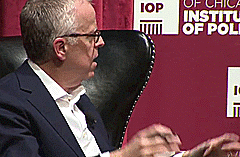

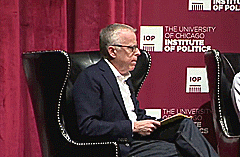

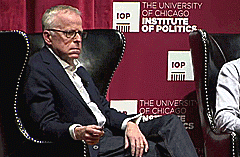
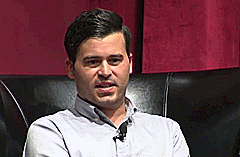
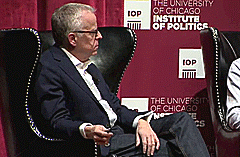
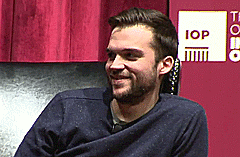
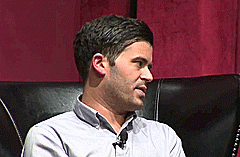
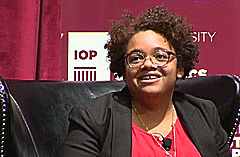
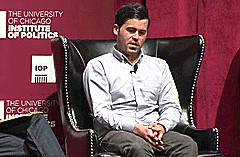

1. BuzzFeed has an ethics policy. Gawker does not.
Rosenstiel: “Max [Read], I’ll send you a copy of The Elements of Journalism, one of the books I’ve written, so you can start an ethics code.”

2. Gawker’s favorite metric has nothing to do with page views.
Read: “Generally—this is an incredibly corny thing to say—the best metric is getting a couple of emails from people who really like what we do, especially if it’s on pieces that we’re getting a lot of flak for.” Rosenstiel: “That’s remarkable. That’s the kind of thing you might have heard an editor say 30 years ago.”

3. VICE sometimes uses click bait to get readers to look at more serious content.
Castoro: “You do want to bait them in with the honey and give them a little bit of the saltwater when they come in. That’s really the way the world is. It’s not just cats.” Rosenstiel: “Well, Joseph Pulitzer invented the comic strip at the end of the 19th century, so you’re not entirely new there.”

4. All of these editors consider themselves to be in the journalism business.
Read: “Gawker’s founder Nick Denton used to say, we’re not journalists, but we might do journalism accidentally.” Rosenstiel: “We’re going to go in the green room later and talk about stuff that we couldn’t talk about up here, and then Max [Read] can put it on Gawker.”

5. Traffic to these sites comes primarily from other places: Facebook, “dark social” (email or IM), Twitter, or Pinterest.
Castoro: I think it basically follows that model, minus the Pinterest. Hilton: You gotta get a “Pintern.”

6. Asked what they would like to cover more, Read (Gawker) chose Internet culture, Hilton (BuzzFeed) said climate change, and Castoro (formerly VICE) said international topics.
Castoro: “We did an issue called “Saving South Sudan.” It was one author, one photographer, and a 30,000-word story. I would love to bring attention to issues like that.”
7. Middle-aged people don’t enjoy Gawker, as Read’s parents like to point out. But the real issue is the young people of tomorrow.
Read: “We’re not Instagram or Snapchat. That’s a bigger business problem.”
